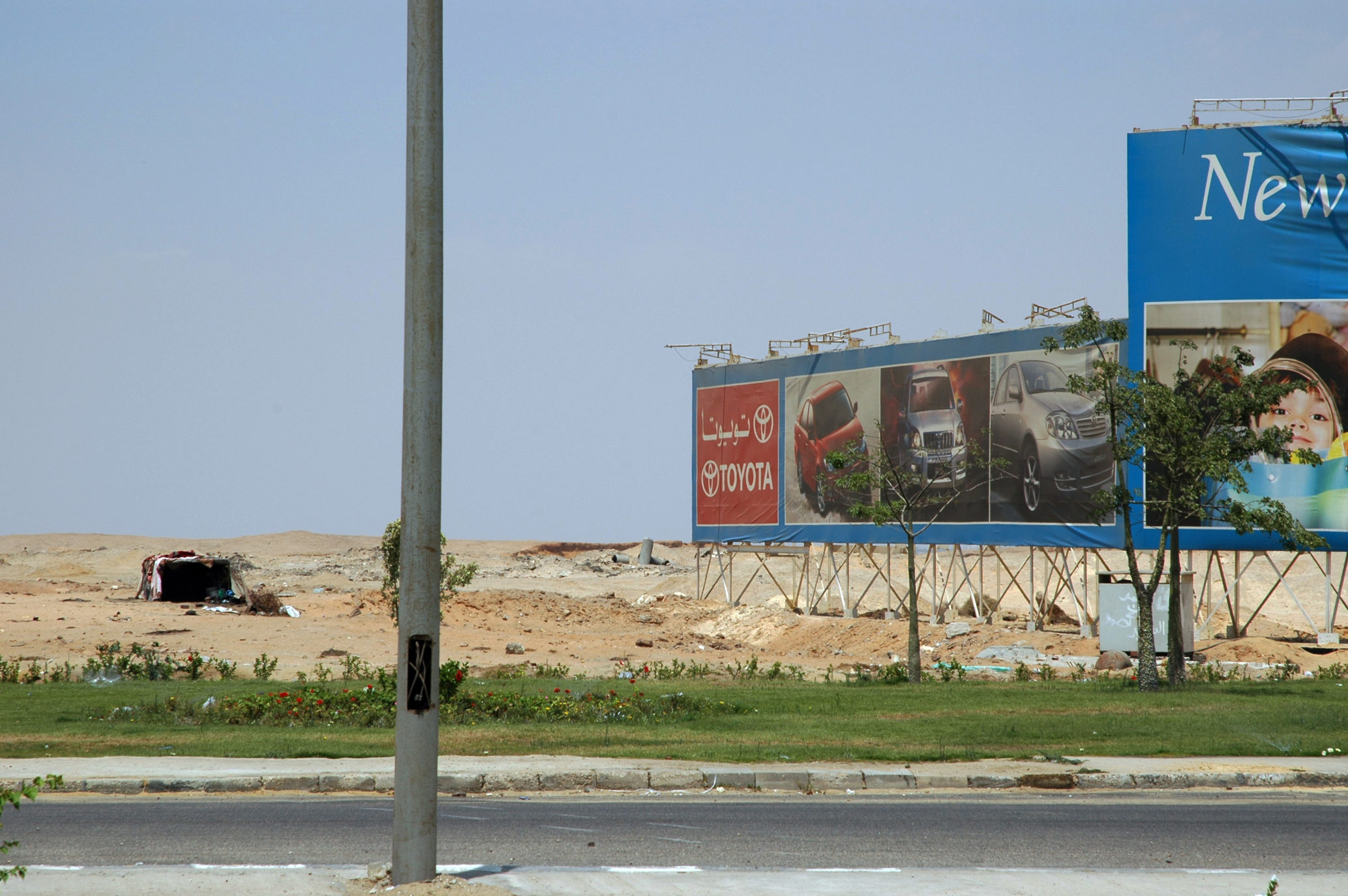Egyptians like to think of Cairo as the “Mother of the World,” Om El Donia in Arabic: the center of the universe, home to an unrivalled 7,000-year history, and the origin of civilization and all things good, from beer and paper to bowling. That reputation has taken a hit over the last few decades, as the city’s fortune has faded. And so, while newcomers like Dubai are still dismissed by a certain stratum of the Cairene elite as no more than “tribes with flags,” others in Cairo have come to look at the Gulf with admiration and envy, seeking to replicate its gleaming skyscrapers, luxurious shopping malls, and immaculate streets. Increasingly, it seems like Cairo aspires to be “Dubai on the Nile,” an amusing shift: no more accurate than the nineteenth century’s proverbial “Paris on the Nile,” but tapping the same malaise or melancholy that wants to attach Cairo to greatness.
Stuff gets “Egyptianized,” however. There is a certain quality that envelops anything that enters into Cairo’s sphere; it’s a bit difficult to describe, but anyone who has spent time in Egypt will understand what I’m talking about. Shopping malls, gated communities, airport terminals: however uniform and standard you might expect these things to be, you will realize that you are in an Egyptian version the moment you step inside. People’s demeanor and how space gets occupied and used: it will all be unmistakably rendered Egyptian.
Uber is no different. In 2014, “Ya Om El Donia. Your Uber Has Just Arrived, Cairo!” announced the US-based ride-sharing company on its website. Thanks to the presence of a globalizing tech company, Cairo is Mother of the World once more: all is good and well and the country can only move forward from here. And last December, I was staying in the suburb of Maadi, in the southern part of the city, and since I needed to travel to the city’s center in the district of Zamalek, I took an Uber.
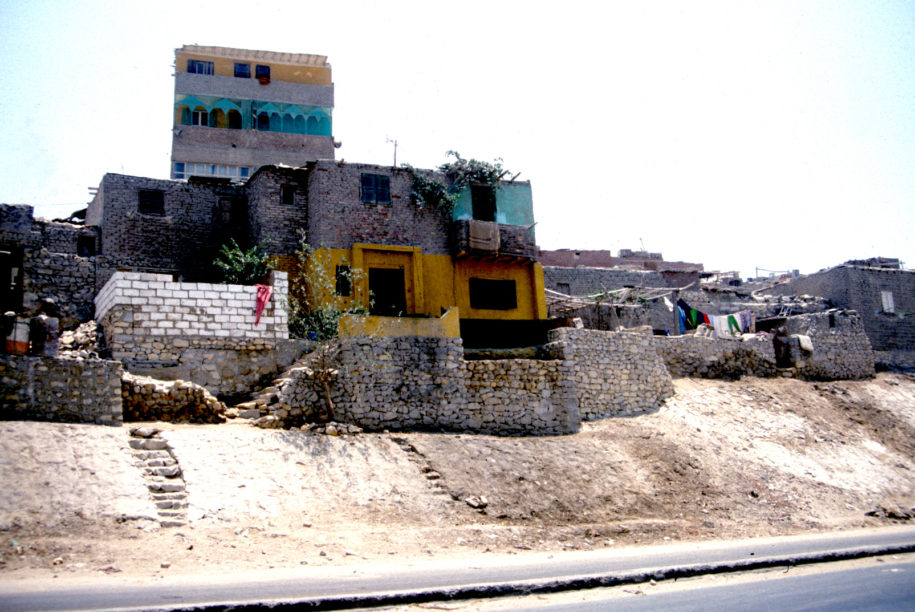
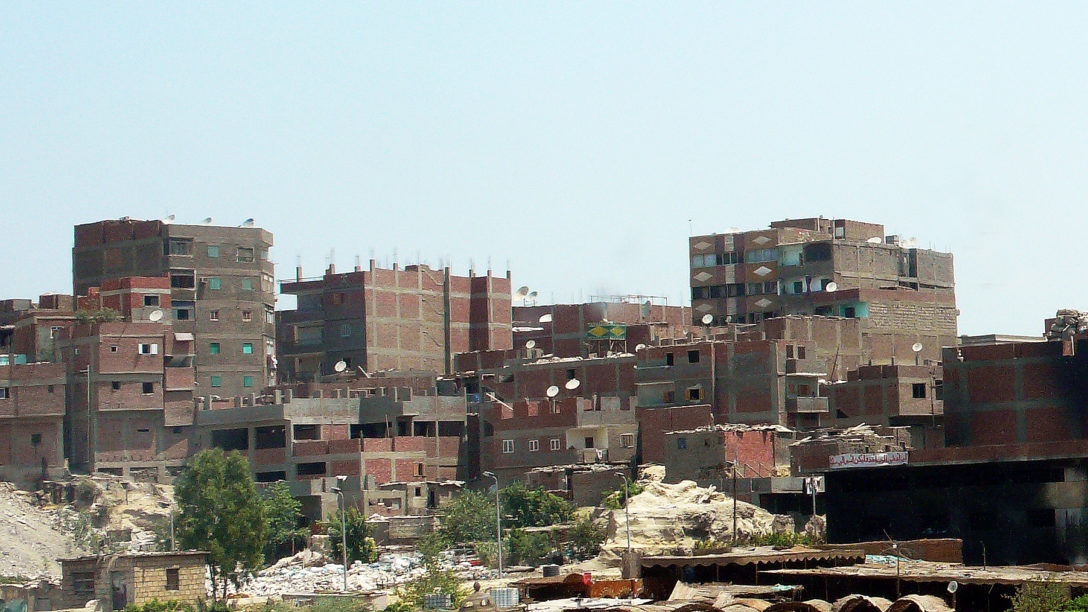
The journey lasts more than an hour, taking you on the Autostrade highway, then the ring road, then across the Nile, and, finally, through congested central Cairo. You pass informal settlements, ghost buildings that have stood empty for decades, vast public housing projects, and half-finished exit ramps surrounded by construction debris. A multitude of billboards advertise real estate ventures in New Cairo, with promising names like “Palm Hills,” “Uptown Cairo,” and “La Vie en Rose”; you envision a life of bliss and momentarily forget the desolate environment around you. To help with this cocoon of delusion, city officials have erected barriers to hide the vast informal neighborhood that is bisected by the ring road, barriers which residents simply punctured holes through so they can stand on the highway and flag down minibuses.


When we hit a notorious Cairo traffic jam, I settled into the back seat; this would take a while, I thought. The driver began to unwrap a large package.
“Would you like some? Have some!” he said, pointing to a sandwich wrapped in cellophane. In Egypt, such invitations are mostly courtesy, so I declined. “I haven’t eaten all day,” he explained, a bit defensively. I didn’t need to know, I thought, but let the guy have his dinner. But after he finished his sandwich, he turned to me again. “Do you mind if I smoke?” he asked, one hand holding a cigarette and the other a lighter. Like the offer of a sandwich, it wasn’t really a question.
“Go ahead, no problem,” I said, pressing a button to bring down the side window. We were going to be in the car for a while, I figured. No need to cause irritation.
I could not imagine this scene anywhere else. Paris, Marseille, London, Singapore, Dubai, DC, Philly, NYC: a driver lighting a cigarette would be inconceivable. Was it an act of defiance against the forces of globalization? Was it a protest against the norms of civilized society? But though a Tom Friedman–style cab-driver conversation beckoned me—Uber, Cairo, politics and revolutions, everything would be connected!—the smoke wafted into the back instead, enveloping me, and I started coughing. As I gasped for air, I thought better of it. Maybe not tonight.
But as we moved along the highway, my thoughts turned to the fading glory of the city itself, as the proverbial march of globalization eviscerates all one holds dear: entire neighborhoods demolished and historical districts replaced by Dubai-inspired glass towers, shopping malls descending on unsuspecting desert, while gated communities protect the well-to-do from the looming proletariat. I was reminded of what Orhan Pamuk described as hüzün, the Arabic word for sadness but also, in Turkish, a sense of communal melancholy derived from a once-great but now fading empire. What Pamuk called “a black mood shared by millions of people together” was something he saw in Istanbul, writing that hüzün is “a way of looking at life that implicates us all, not only a spiritual state, but a state of mind that is ultimately as life affirming as it is negating.”
It reminded me of Cairo too, but without the life-affirming part. Our hüzün is different: tinged with a premonition of impending doom—and a fatalistic embrace of disaster—it also comes with the delusional pride that the Mother of the World still is, somehow. And these attitudes always defy efforts to transform Cairo into a placeless Gulf urbanity. The urge is there, to be a city where the sidewalks are not broken, where walls are pristine, where one is immune from the gaze of the deprived; to be a city where you could drive safely, without interruption, where clean and immaculate Ubers with well-behaved drivers are available at the tap of one’s fingers, where the poor and marginalized are herded to a safe distance, congregating in their own compounds.
But in Cairo, such things don’t turn out that way.
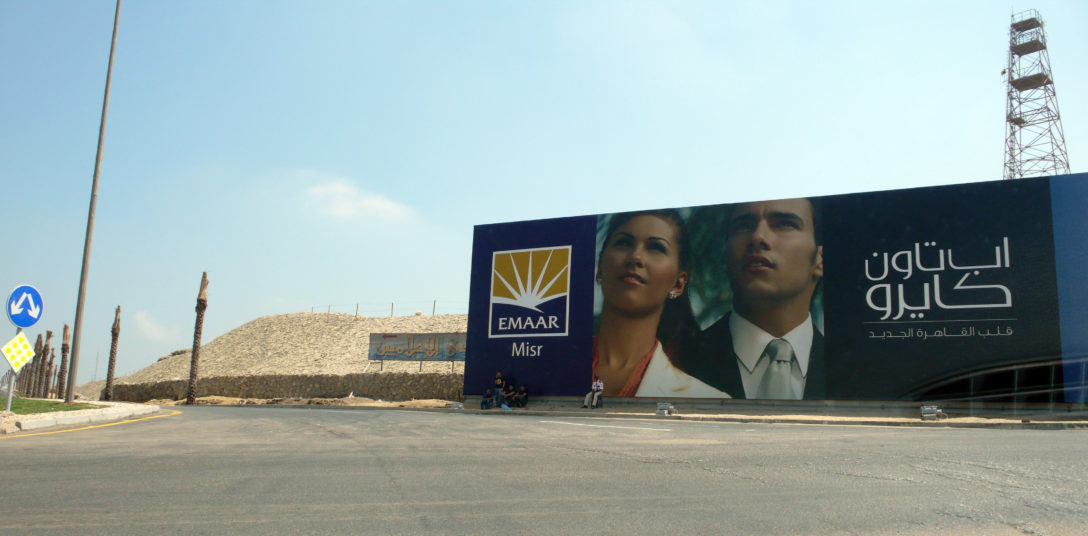
When Uber was introduced in 2014, a major selling point was the contrast with the deteriorating black-and-white taxi cabs, and anyone who has ever stepped into one of these decrepit relics of a past age will surely sympathize. Driver quality varied dramatically, and the cars were always on the verge of collapse, without air conditioning, and since the meter was always “broken,” one had to haggle for the price. Longtime residents developed strategies for surviving a ride which took advantage of newcomers and tourists, all of which reflected the savage chaos that is Cairo.
Uber was going to be different, and so, naturally, the decrepit relics of a past age fought them. First in the courts: lawsuits were filed and rulings issued, but eventually (as seems to happen everywhere) they were overturned. The ride-sharing company’s operations took their place alongside regular taxis, tuk-tuks, minibuses, and other forms of transportation. Uber even expanded its offerings, giving people the option to reserve a scooter as a way to move through traffic more quickly (if one were so inclined). The Egyptian state even saw an opportunity to expand surveillance of its citizens, integrating ridership data with security services.
Uber was thus Egyptianized. But as it has become an integral component of daily life, the experience has begun to resemble the black-and-white taxi of yore: drivers eating their lunches and smoking, courtesies offered only as a courtesy and questions with only one answer. We should not be surprised; there’s an old Egyptian proverb, Hasana we ana Sidak: “I beg you for charity but I am your master.” This is an Uber driver lighting a cigarette in his car, a vendor setting up a small stand to sell vegetables in a gated community, graffiti declaring the continuity of the revolution. All of it, from cobbled-together tuk-tuks navigating alleyways to residents chopping through highway barriers, refusing to succumb to hüzün: a fading glory that never fades and a city that stays Cairo, as it has for millennia.
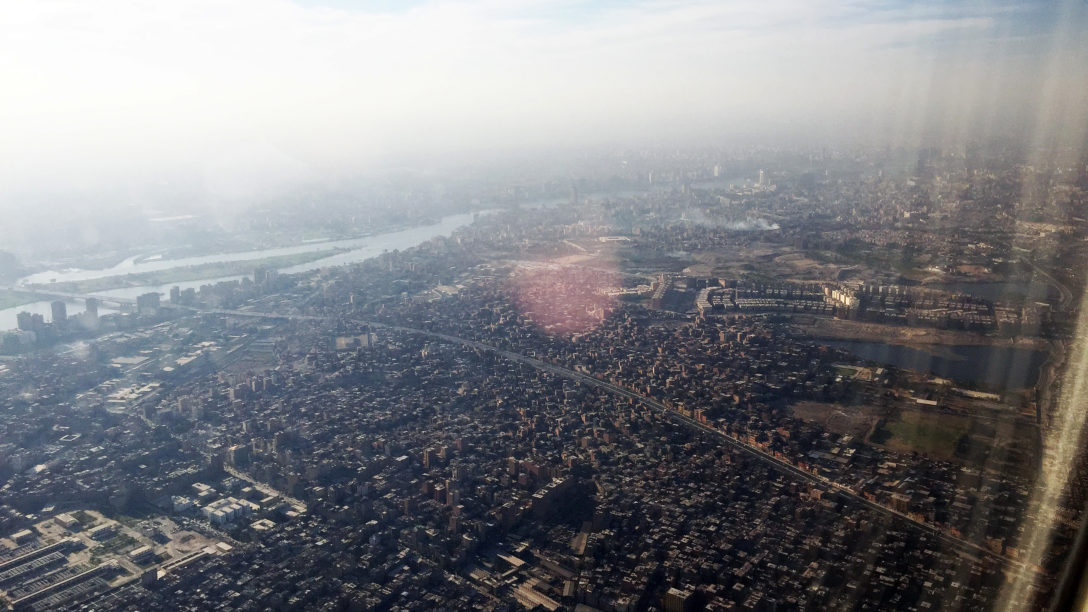
Aaron Bady

